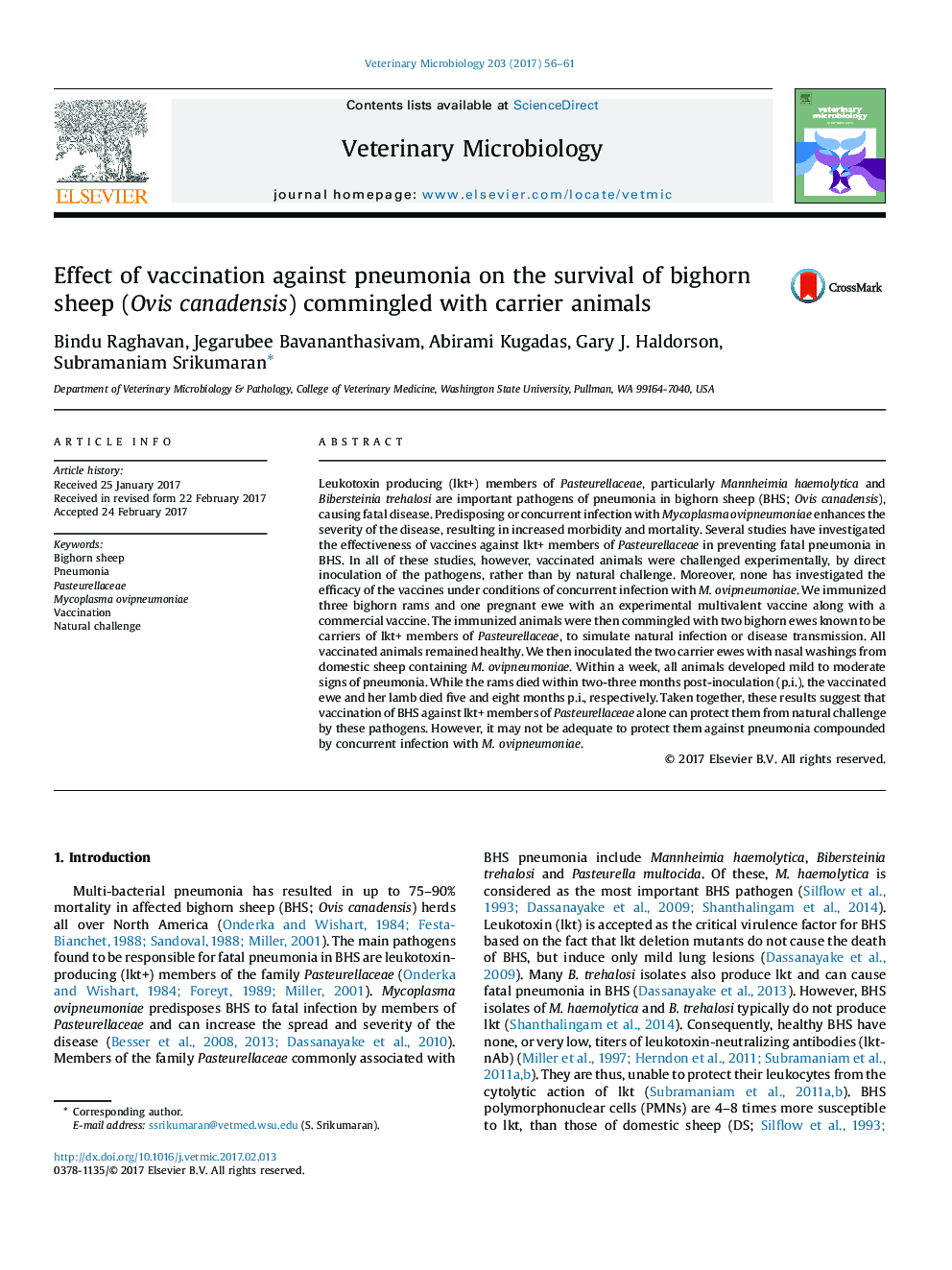| Article ID | Journal | Published Year | Pages | File Type |
|---|---|---|---|---|
| 5545286 | Veterinary Microbiology | 2017 | 6 Pages |
Abstract
Leukotoxin producing (lkt+) members of Pasteurellaceae, particularly Mannheimia haemolytica and Bibersteinia trehalosi are important pathogens of pneumonia in bighorn sheep (BHS; Ovis canadensis), causing fatal disease. Predisposing or concurrent infection with Mycoplasma ovipneumoniae enhances the severity of the disease, resulting in increased morbidity and mortality. Several studies have investigated the effectiveness of vaccines against lkt+ members of Pasteurellaceae in preventing fatal pneumonia in BHS. In all of these studies, however, vaccinated animals were challenged experimentally, by direct inoculation of the pathogens, rather than by natural challenge. Moreover, none has investigated the efficacy of the vaccines under conditions of concurrent infection with M. ovipneumoniae. We immunized three bighorn rams and one pregnant ewe with an experimental multivalent vaccine along with a commercial vaccine. The immunized animals were then commingled with two bighorn ewes known to be carriers of lkt+ members of Pasteurellaceae, to simulate natural infection or disease transmission. All vaccinated animals remained healthy. We then inoculated the two carrier ewes with nasal washings from domestic sheep containing M. ovipneumoniae. Within a week, all animals developed mild to moderate signs of pneumonia. While the rams died within two-three months post-inoculation (p.i.), the vaccinated ewe and her lamb died five and eight months p.i., respectively. Taken together, these results suggest that vaccination of BHS against lkt+ members of Pasteurellaceae alone can protect them from natural challenge by these pathogens. However, it may not be adequate to protect them against pneumonia compounded by concurrent infection with M. ovipneumoniae.
Related Topics
Life Sciences
Agricultural and Biological Sciences
Animal Science and Zoology
Authors
Bindu Raghavan, Jegarubee Bavananthasivam, Abirami Kugadas, Gary J. Haldorson, Subramaniam Srikumaran,
